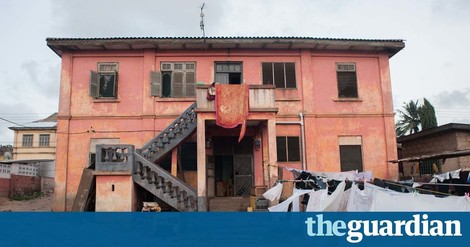Your podcast discovery platform
Curious minds select the most fascinating podcasts from around the world. Discover hand-piqd audio recommendations on your favorite topics.

piqer for: piqd Boom and bust Climate and Environment Global finds Globalization and politics Health and Sanity Technology and society Doing Good Deep Dives
Malia Politzer is the executive editor of piqd.com, and an award-winning long-form journalist based out of Spain. She specializes in reporting on migration, international development, human rights issues and investigative reporting.
Originally from California, she's lived in China, Spain, Mexico and India, and reported from various countries in Africa, Europe and the Middle East. Her primary beats relate to immigration, economics and international development. She has published articles in Huffington Post Highline, The Economist, The Wall Street Journal, Vogue India, Mint, Far Eastern Economic Review, Foreign Policy, Reason Magazine, and the Phoenix New Times. She is also a regular contributor to Devex.
Her Huffington Post Highline series, "The 21st Century Gold Rush" won awards from the National Association of Magazine Editors, Overseas Press Club, and American Society of Newspaper Editors. She's also won multiple awards for feature writing in India and the United States.
Her reporting has been supported by the Pulitzer Center on Crisis Reporting, The Institute For Current World Affairs, and the Global Migration Grant.
Degrees include a BA from Hampshire College and MS from Columbia University Graduate School of Journalism, where was a Stabile Fellow at the Center for Investigative Journalism.
The True Story Of The Fake US Embassy In Ghana
Last November, an unbelievable story made international headlines: A “fake” American embassy had been issuing visas in Ghana for nearly 10 years before being busted. The story was picked up by all the big news agencies — Fox, CNN, and Reuters. There was only one problem wth the story: It was made up.
In this Guardian long read, journalist Yepoka Yeebo reveals the far more fascinating reality behind the misleading headline — showing how severe visa restrictions limiting the number of Ghanaians who can easily leave for greener pastures, in combination with more rigid visa rules (intended to cut down on fraud), and poor job options for Ghanaian youth, have given rise to an extremely lucrative and increasingly sophisticated fraudulent visa industry.
Once upon a time, the fraudulent immigration industry relied on doctoring stolen passports. However, with the advent of biometric data, using stolen passports is no longer as easy as it once was, leading fraudsters to come up with increasingly clever and sophisticated techniques to dupe embassies. Now, they try to create convincing false documents to procure real visas: And the more measures embassies put up to try to deter the practice, the more lucrative it becomes.
It’s a fascinating economic cat-and-mouse game; except ordinary people pay the price. As fraud becomes more common, getting a visa becomes more difficult. Or, as journalist Yeebo so succinctly lays out:
The harder it is for ordinary people to apply for visas successfully, the greater the demand for fraud. While the Americans have been making a show of shutting down a non-existent fake embassy, it’s boom-time for Accra’s visa-fraud industry.
